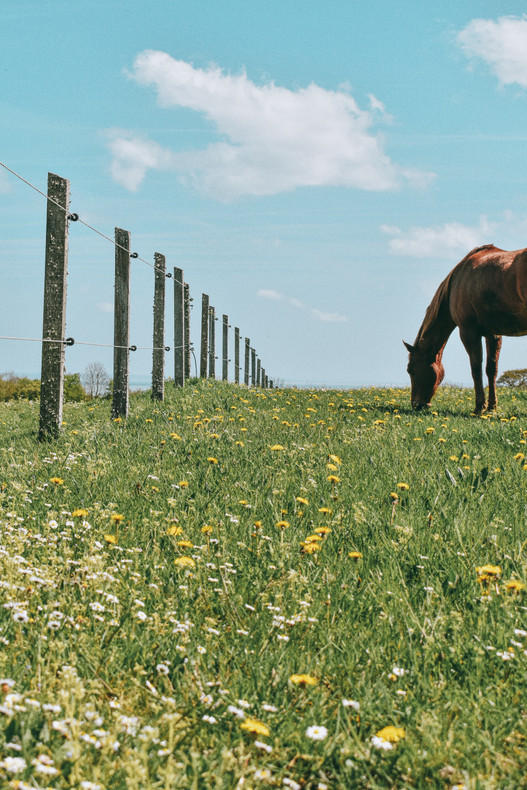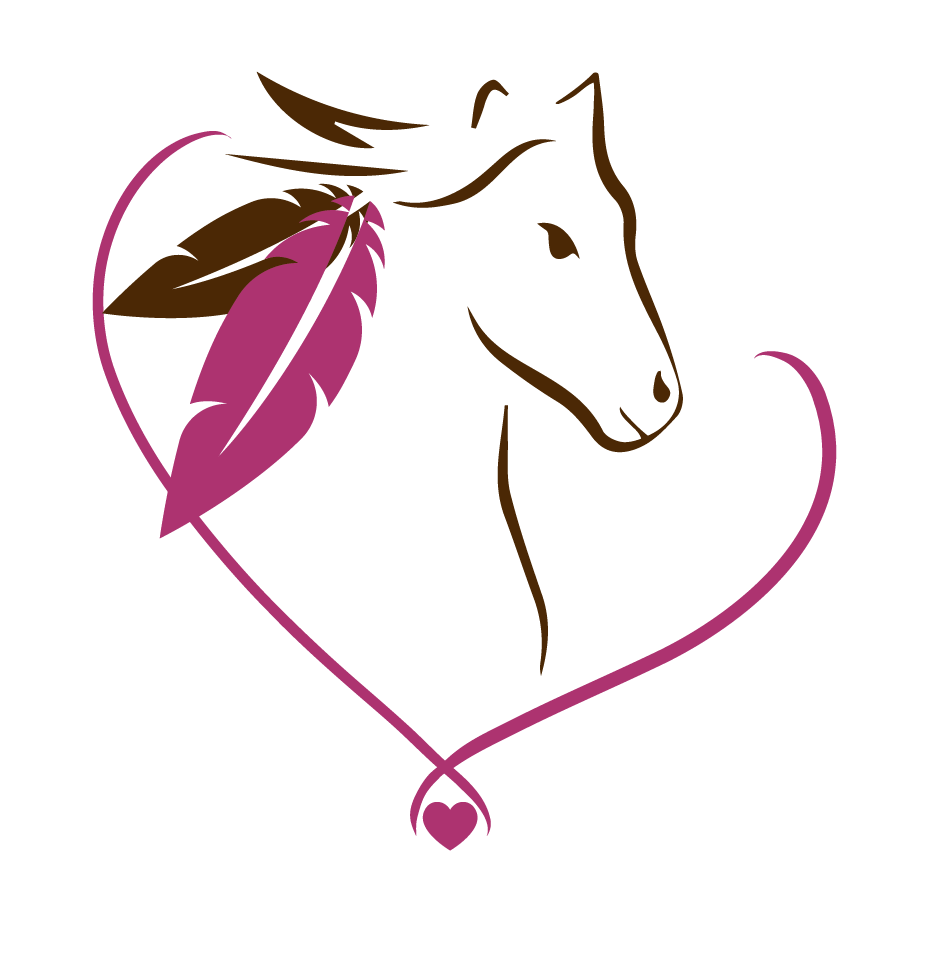~ Restoring Your Horse’s Health ~
The use of probiotics (pro = good, biotic = alive) for almost all species have really come on strong in the last several years. We have been waiting a lot of years for science to catch up on what many of us instinctively knew or learned from our grandmothers - that a healthy gut is associated with good health and longevity. Science is still trying to sort it all out, but we have learned more about the microbiome over the last few years than we have ever known before, including how the use of beneficial bacteria through diet and probiotic supplements can help to strengthen the health of all of our animals. Turns out that the horse’s hindgut is one fascinating place!
What Is the Equine Microbiome?
The microbiome is a complex network of trillions of microbes (tiny living things) that every species on the planet relies on for good health. A balanced microbiome helps the horse digest complex plant material and convert it into energy. It also helps to manufacture vitamins and absorb minerals.
And not only is the microbiome found inside all animals including humans, but it is an important part of our environmental ecosystem as well including water and soil.
Bacteria, fungi, yeasts, protozoa, and viruses are all examples of microbes which co-exist in the microbiome including

the equine digestive tract. Collectively, these are known as microbiota, while the corresponding genetic material is referred to as the microbiome.
Balance and diversity is the key. The richer the microbiome is, the more biodiversity it has, and the stronger becomes the health of the animal.
A healthy microbiome is essential for the efficient fermentation of fibre, which is how horses produce all of their energy. But fermentation of fibre also keeps horses healthy in other ways. For example, a product of fermentation is butyrate, a short chain fatty acid that contributes to gut health and protects against intestinal diseases. Short chain fatty acids suppress inflammation, inhibit the growth of unfriendly bacteria, increase the absorption of minerals, help to control appetite, and maintain normal metabolism.
But a microbiome is not just found in the intestines; it is found throughout the body where it helps to restore balance and ensure intracellular communication. In fact, every organ, including the skin, has a localized population of microbes. And each microbiome in each part of the body is distinct from the others. For example, the bacterium in the stomach is different from the cecum, or from the skin. And the bacterial population can even vary from one area of the gut to another. The equine gut-brain connection is also very important as microbes send signals to the brain affecting the production of neurotransmitters, and therefore emotions.
A healthy and diverse microbiome also has a positive influence on nutritional status supporting the production of essential fatty acids, amino acids, B-vitamins, and micronutrients.
Interestingly, every horse (and human) has a unique microbiome which differs from all other horses. And horses that are genetically related have a more similar microbiome than horses outside of the family even if they don't live on the same farm.
Equine Dysbiosis
Disturbances and imbalances in normal gut bacteria that result in disease or dysfunction is known as dysbiosis. Dysbiosis means that there is a decrease in diversity usually due to an increase in acid as caused by diet, stress, and high numbers of pathogenic bacteria, viruses, yeast, and parasites. Microbes in the gastrointestinal tract are very sensitive to changes in pH, such as when acid levels increase from too much dietary starch for example. And higher acid levels favour disease causing bacteria.
Dysbiosis means that there is a decrease in diversity usually due to an increase in acid as caused by diet, stress, and high numbers of pathogenic bacteria, viruses, yeast, and parasites. Microbes in the gastrointestinal tract are very sensitive to changes in pH, such as when acid levels increase from too much dietary starch for example. And higher acid levels favour disease causing bacteria.
Dysbiosis can also increase the release of cytokines, cytokines are inflammatory chemicals that can cause mild or severe inflammation throughout the body. Inflammatory cytokines also cause brain dysfunction, anxiety, and mood changes. Does your horse have high levels of anxiety or problems focusing on her tasks? It could be a hindgut issue.
Once the microbiome is damaged the immune system is also affected. In some horses, the immune system may recover quite quickly, but in those horses with pre-existing conditions, chronic infections, feed sensitivities, or emotional stress, the microbiome and the immune system may take a very long time to recover.
Signs that your horse may have dysbiosis include: gas, bloating, colic episodes, ulcers, diarrhea, weight loss, skin problems, behavioural issues, and laminitis.
How Does a Horse’s Microbiome Become Unbalanced?
Age, lifestyles, pasture habits, processed food, contact with humans and medications are seen as the most influencing factors in the health of the microbiome. Therefore, it is no surprise that studies have revealed that the microbiome of domestic horses have a less diverse spectrum of microbiota than those of the non-domesticated or feral/wild horses. Feral horses also have higher levels of specific bacteria that breaks down fibre.

1. Age. Foals, until 9 months of age, and horses between the ages of 19 and 28 years, show a decrease in diversity.
2. Forage and Feed. Sugar from grass and other high sugar feeds, as well as grain promote the reproduction of unfriendly bacteria and microbes. Dietary oils interfere with the microbiome as does an excess of processed feeds. Horses with a forage-based diet have a healthier and more diverse microbiome than those horses on processed feeds. Horses with Insulin Resistance, Cushing’s Disease (PPID), and weight problems also have an altered microbiome.
3. Medication. Antibiotics, steroids, anesthetics, chemical dewormers, and vaccines all contribute to killing off bacteria indiscriminately – friendly or unfriendly - which then promotes the growth of opportunistic pathogenic bacteria, yeast, protozoa, and viruses; all of which damage the immune system. Dysbiosis after administering antibiotics is well known. Go natural before you reach for the drugs; many of them are unnecessary, people are just in a hurry for the quick fix. Or they are in fear that their horses will die without drugs. Remember, your horses have an immune system which is equipped to handle a lot of different foreign invaders. They live outside after all. Just give them a little time and save the antibiotics for a last resort.
4. Dental Care. Digestion starts in the mouth. Horses that can’t chew properly because of distressed teeth have more gas, heat, toxins, and acids in the gut that kill off good bacteria and favour unhealthy bacteria.
5. Stress. Stress has a detrimental effect on the microbiome with an increase of cortisol levels. Avoid stressing out your horses with isolation, confinement, lack of exercise, unhealthy herd dynamics, over-training, too much travel, and too much competition.
“Keep your horses in a rich natural environment that allows them to express the behaviours that are natural to horses, not to people.”
The Benefits of Giving Your Horse Probiotics
Given all the benefits of a healthy microbiome we can see that probiotics have both a direct and indirect influence on various organs and systems including the brain, heart, lungs, liver, and digestion while controlling inflammation as well as hormone production. All of these microbes in the microbiome may very well be considered as an organ in their own right.
Different species of Bifidum and Lactobacillus, the most common probiotic strains used for both people and animals, have had positive effects on animal models, as well as horses. These benefits include improved intestinal immunity, a reduction of inflammation, inactivation of toxins, and less intestinal permeability (i.e., leaky gut).
Aside from balancing the microbiome, healthy microbes adhere to the gut wall and block pathogenic bacteria from attaching to the membranes. These actions help all digestive conditions including colic, support an overall healthy immune system, and help horses gain weight by improving the digestion of feed. They also support the detoxification of bacterial and viral endotoxins.

Given all these benefits consider adding a good probiotic supplement to the natural health program for the following health conditions.
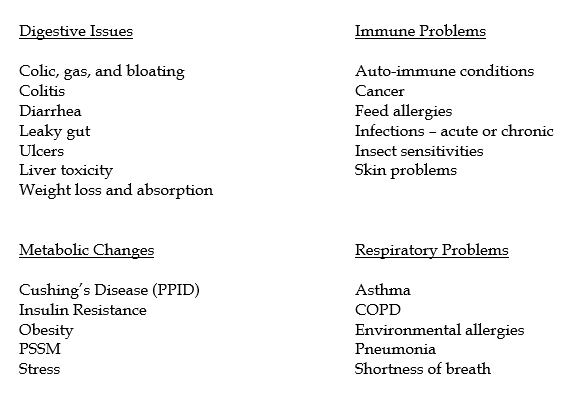
Also include probiotics before, during, and after the use of antibiotics, steroids, vaccines, ulcer medications, chemical dewormers, and most other drugs.
What Kind of Probiotics Should You Give Your Horse?
To maximize potency the probiotic that you purchase should be refrigerated and require refrigeration after purchasing. Probiotics that are stabilized to room temperature have less potency and also lose that potency much quicker than “cold” probiotics. There are very few species that can survive at room temperature and most of them die within 30 days. Probiotic supplements should also be free of binders, fillers, or preservatives. Probiotics, i.e., live bacteria, are measured in colony forming units (CFU’s) and one dose usually contains 50 billion CFU’s or more. Adverse effects of probiotic supplements are rare in both humans and animals.
Do Probiotics Need to be Species Specific?
Probiotic species can include Acidophilus, Lactobacilli, Bifidobacterium, and Enterococci which are common ingredients in equine probiotic supplements. These bacteria however are not necessarily indigenous to the equine intestinal tract. Much has been written about the benefits of using a species-specific strain of probiotics. However, the ability of probiotics to colonize the intestinal tract does not seem to be based on species or host specific bacteria. In fact, some bacterial species taken from equine feces were actually more adherent to the digestive tracts of humans and dogs. Therefore, probiotics should be chosen based on their properties and their potential benefits, not necessarily their origin or their ability to colonize the intestines.
Prebiotics
Prebiotics help the microflora as well. Prebiotics provide soluble and insoluble fibre usually from plant fibre which the healthy gut bacteria can metabolize for food to increase their numbers and the diversity of the microbiome. A foraging horse with access to grasses, leaves, shrubs, and roots therefore has a good diet of prebiotics, in contrast to a horse that is confined without turn-out. And since a lot of horses cannot forage in the winter through the snow and ice, winter is a good season to supplement.
Prebiotics are found in the following foods and herbs:
- Flax seeds
- Chia seeds
- Leafy greens from the garden or kitchen (chopped)
- Cooked barley
- Cooked oats
- Beet pulp
- Wheat bran
- Psyllium husk
- Marshmallow root
- Slippery Elm
- Apples
Toss in a 1/4 tsp of Riva’s Pro-Colon and your horse's hindgut will be amazing!

Change Up the Lifestyle
• Allow your horses to forage on as many different plants, weeds, and shrubs as possible.
• Keep all medications to an absolute minimum and ask yourself, your horse, and your vet if your horse really needs them.
• Reduce stress levels.
• Add digestive herbs to the daily mash; herbs are often natural prebiotics which help to restore the balance of microbes in the intestines.
Recommended Supplements & Remedies
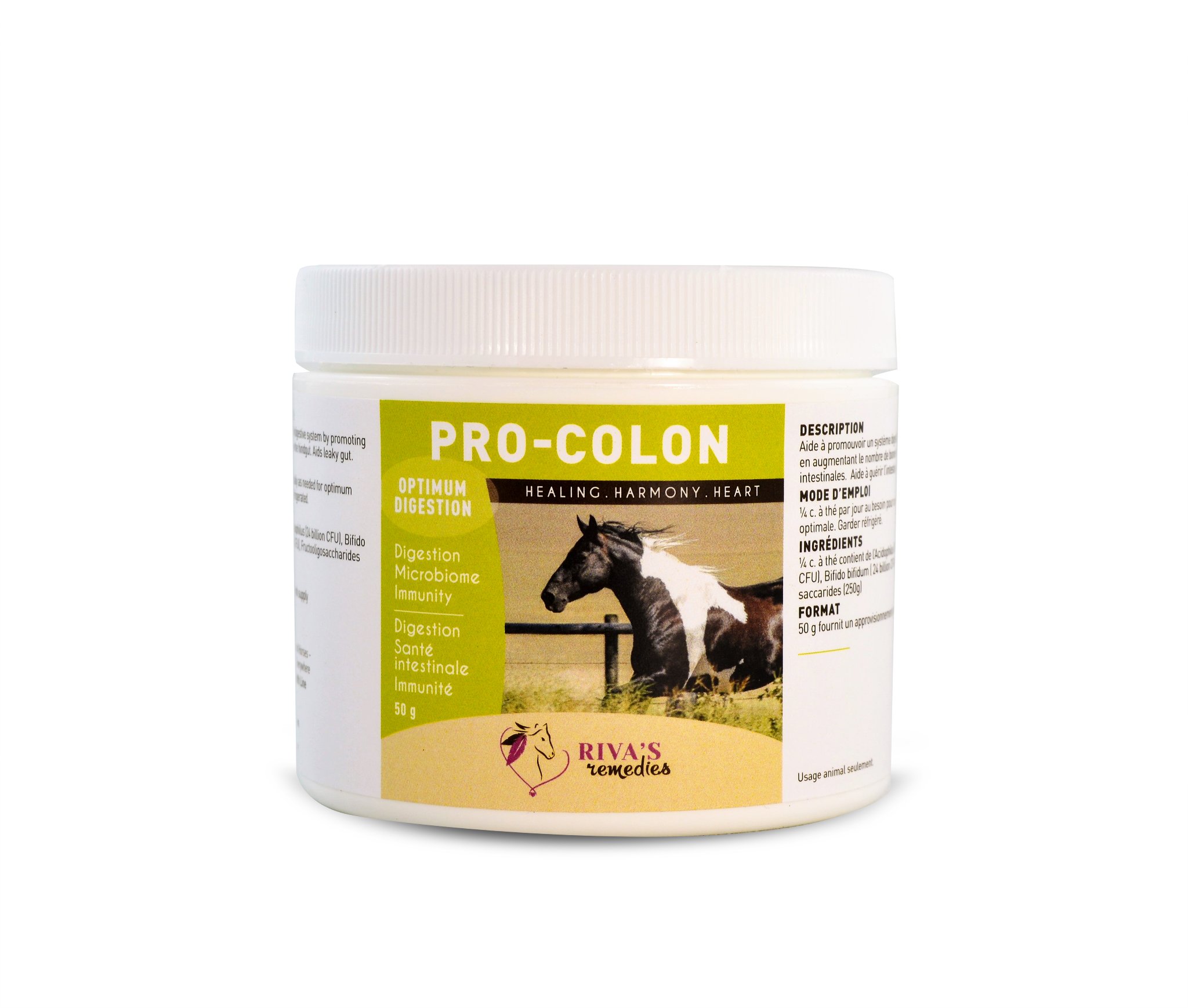 Pro-Colon: ¼ tsp daily. (A proprietary blend of acidophilus, bifido bifidum, and fructo-oligosaccharides (FOS). Keep refrigerated.
Pro-Colon: ¼ tsp daily. (A proprietary blend of acidophilus, bifido bifidum, and fructo-oligosaccharides (FOS). Keep refrigerated.
> Pre- and probiotics to maintain a healthy microbiome. Supports nutrient absorption and the intestinal immune system. Contains no fillers or binders.
 Baking Soda (sodium bicarbonate): 1 Tbsp daily for 30 days
Baking Soda (sodium bicarbonate): 1 Tbsp daily for 30 days
> Reduces hyperacidity and helps to balance the intestinal pH levels. A more alkaline environment discourages pathogenic bacteria, viruses, yeast, and protozoa.
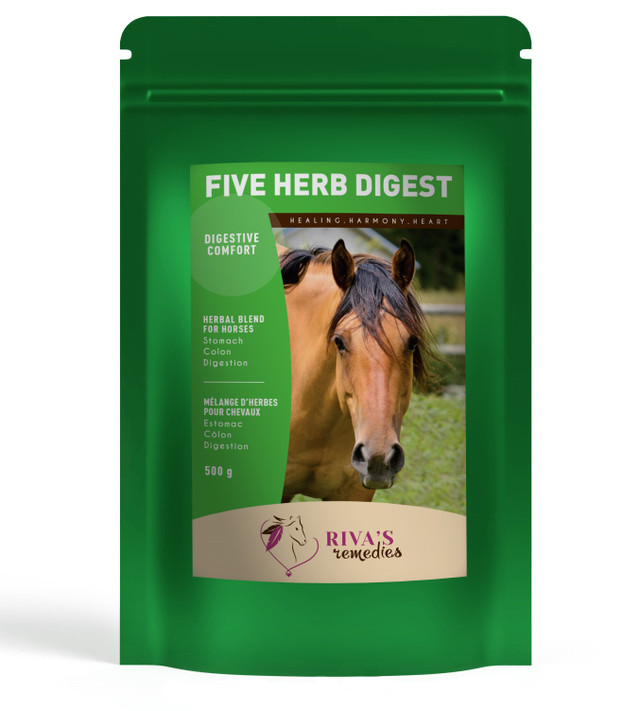
Five Herb Digest herbal blend: ¼ cup daily. (A proprietary blend of caraway, catnip, fennel, fenugreek, and peppermint leaf.)
> Supports the function of digestive enzymes and promotes healthy feed digestion. Maintains a calm digestive system.
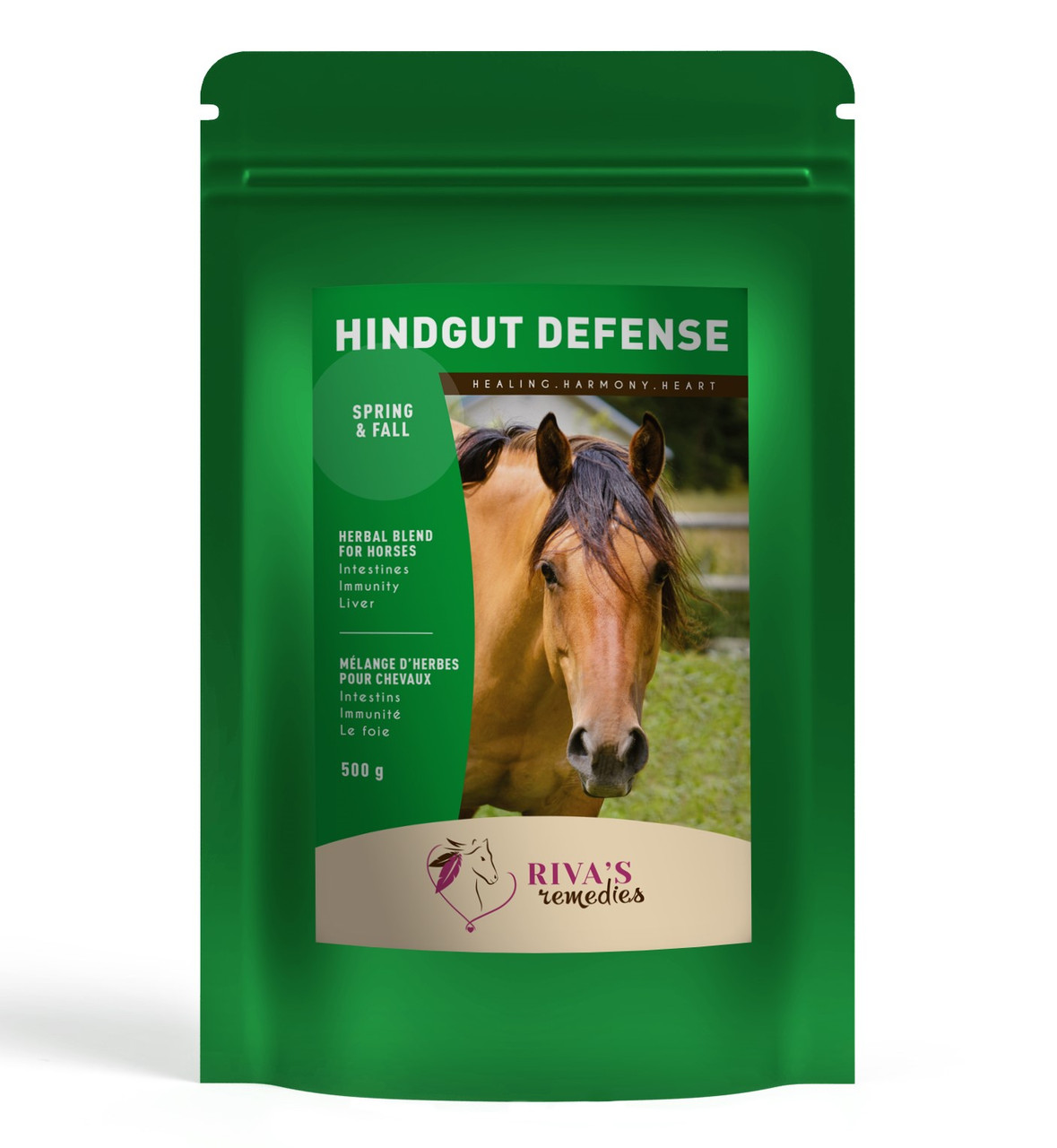
Hindgut Defense herbal blend: 2 Tbsp daily. (A proprietary blend of sage, thyme, slippery elm, cayenne pepper, and garlic.)
> Supports the microbiome to help maintain resistance against and support the balance of bacteria, parasites, and yeast.
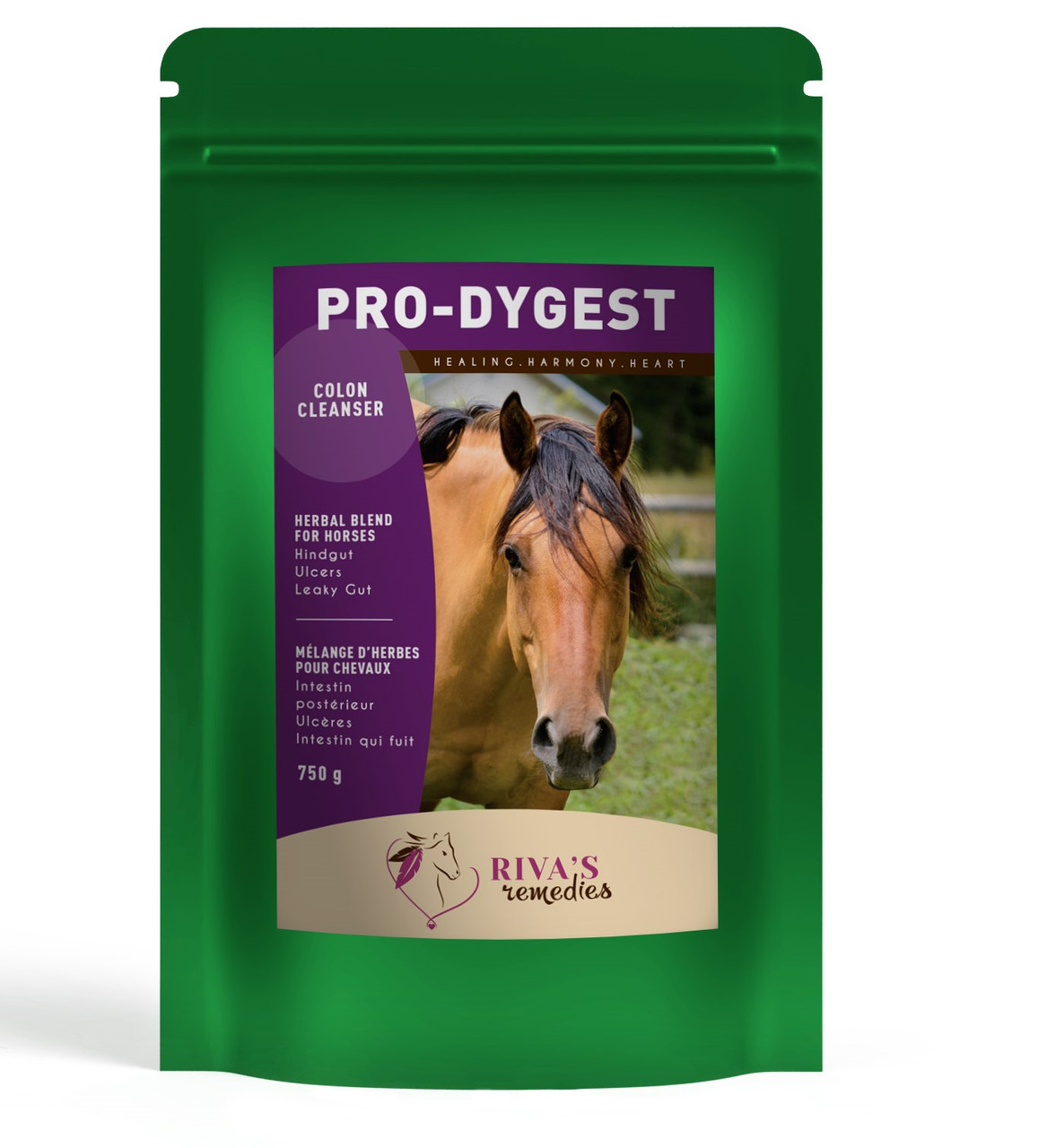
Pro-Dygest herbal blend: 2 Tbsp daily. (A proprietary blend of Bentonite clay, chamomile, Irish moss, and slippery elm.)
> Intestinal cleanser and detoxifier. Protects intestinal membranes from mal-digested feed material and irritations. Natural demulcent.
It seems that the microbiome is its own universe that is there to benefit its host. Its contributions are nothing short of amazing! We know how important the external natural environment is to our horses’ health and now over the recent years we have learned that their internal natural environment is just as important. Helping horses align themselves with the vast and diverse ecosystem that resides within their gut will serve them well in good health and longevity.
*Please note: We provide a thorough selection of our natural products to help you choose the ones that are best suited for your horse. If you need additional assistance in making the right choice, feel free to reach out to us.
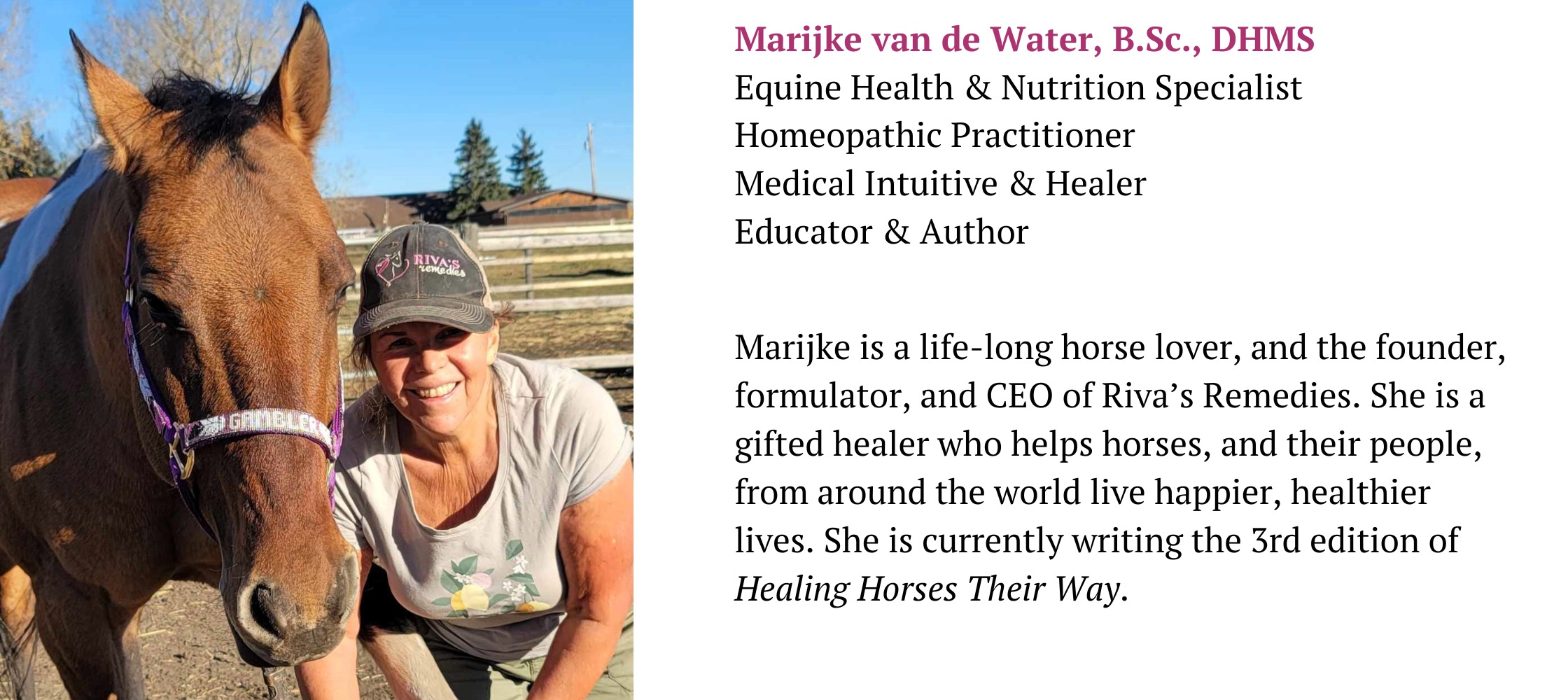
Copyright June 2023

